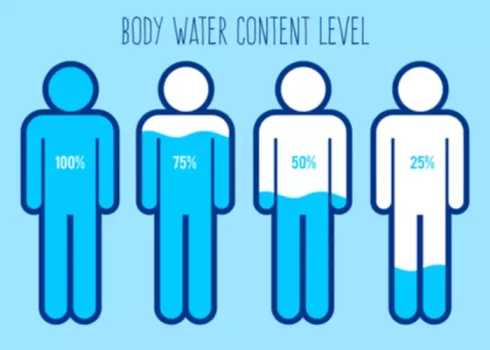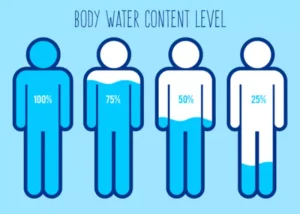
Home »
Coping with Anger in Addiction Recovery Different Forms of Anxiety
Heightened responses due to alcohol consumption can make anger intensified. […]

Heightened responses due to alcohol consumption can make anger intensified. If your behavior fits the description of an angry drunk, it may be difficult to admit you behaved that way under the influence. Many people whose behavior changes drastically with drinking have a hard time believing it when they’re sober. But the best choice for you and the people around you is to enter treatment and work to become a better person. Luckily, that clarity can be beneficial, because it means that you have a chance to put your foot down and stop what you’re doing. If you become a crazy drunk person when you’re drinking, and you drink often, it’s probably safe to say you’re an alcoholic.
- If your partner shows intense feelings of anger and a lack of self-control when drinking, reach out for help.
- Relapsers group differ from the abstainer group in relation to the presence of trait and state anger.
- Prior reports have established alcohol-induced aggression among males (Lipsey et al., 1997), which appears to vary across the ethnic groups and geographical regions (Caetano et al., 2001).
- To date, very few studies have tested the gender difference hypothesis using both the male and female subjects.
- However, it acts as a potential catalyst for heightened emotional responses, particularly anger.
- As a therapist on the Monument platform, I often work with my patients to identify the root cause of their anger, and establish healthier ways to process intense emotions in sobriety.
Recognizing Xanax Withdrawal Symptoms in a Friend

It is best to choose a time when your friend is thinking clearly and seems receptive. Let them know you are concerned about the pattern you have noticed and how they may benefit from a recovery program. They may not be aware of the newer and more convenient options that exist today. Anger is a normal human emotion that we all feel at times and for different reasons. It can even be productive because it tells us we need to address some things that aren’t going well in our lives. If you or someone you care about is struggling with alcohol-related rage there are some steps you can take to prevent future incidents.
- Many people with “angry drunk” tendencies also end up on the wrong side of law.
- It can even be productive because it tells us we need to address some things that aren’t going well in our lives.
- Such factors including head injury, neurochemistry, physiological reactivity, metabolism, and genetics.
- 68% of the dependent and abstainers perceived anger as negative emotion and 76% in control perceived it as negative.
- Support groups such as Alcoholics Anonymous (AA) and Self-Management And Recovery Training (SMART) are open to anyone with a substance use disorder.
Why Does Alcohol Cause Rage?
This initial emotional reaction can feel overwhelming, but is typically only temporary with the right support. While psychotherapy is the primary approach for co-treatment of alcohol use and anger management, medications like mood stabilizers and those used to treat substance withdrawal may also be part of your treatment plan. Likewise, hostility is an attitude of resentment and unfriendliness that doesn’t require feelings of anger. The World Health Organization (WHO) warns that alcohol interferes with a person’s cognitive and physical functioning, inhibiting self-control and making it more difficult for a person to recognize when things have gone too far. It can be harder for https://ecosoberhouse.com/ someone under the influence of alcohol to notice typical warning signs that emotions, especially anger, may be getting out of control. This occurs in long-term relationships such as marriage, as well as all dating scenarios.
- By employing these de-escalation strategies and prioritizing safety and well-being, we can effectively manage anger in intoxicated individuals and work towards a peaceful resolution of conflicts.
- Unfortunately, quitting something that’s become an addiction isn’t as easy as simply making the decision to stop.
- Therapy assisted him in recognizing how past wounds contributed to his vulnerability to both anger and alcohol use.
- Even in less extreme cases, alcoholic rage can threaten one’s relationships, careers, safety, and more.
- There are multiple reasons why you may experience increased feelings of anger after quitting alcohol – let’s explore three of the most common.
Free Apps to Help You in Addiction Recovery

If (or when) they do, you’ll want to know what options are out there for the treatment of AUDs and what to look for in a treatment provider. Take our short alcohol quiz to learn where you fall on the drinking spectrum and if you might benefit from quitting or cutting back on alcohol. According to the National Council on Alcoholism and Drug Dependence (NCADD) alcohol more alcoholism and anger so than any other substance is a contributing factor in cases of rape, murder, spousal and child abuse, and assault.

What Causes Alcohol-Related Anger and Aggression?
People spend years in therapy and in treatment for issues of their own that are caused by the consequences of this behavior. Alcohol use disorders are chronic conditions, but many people benefit from treatment and ongoing recovery efforts. Treatment options vary in intensity of services, length of treatment, and types of therapeutic interventions. Some of these treatment options may include inpatient treatment (such as residential rehabilitation), outpatient treatment, individual therapy, medications, and more. When you live with a spouse who has an alcohol use disorder, taking care of yourself is important.










